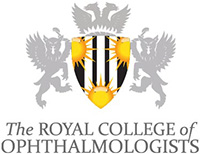What do I need to achieve during my OST3 year?
Essential
During the third stage of OST you will consolidate all that you learned in previous stages and acquire more skills and knowledge. By the end of OST3 you will be able to assess patients with more complex problems by taking a clinical history and examination (CA). You will be able to arrange and interpret ophthalmic investigations (PI). You will be able to manage all basic and some more complex ophthalmic problems without supervision (PM). You will be able to perform a large number of practical procedures and be able to refract and assess a patient for spectacles. You will have obtained the RCOphth Refraction Certificate (PS). You will have acquired microsurgical skills and have performed around 100 cataract operations in total, in addition to a variety of eyelid procedures. You will be able to perform YAG and argon laser procedures (SS). You will be able to engage in most health promotion and disease prevention strategies (HPDP). You will have good communication skills with patients, their carers and colleagues (C). You will be maintaining a training portfolio and be able to use IT effectively (IH). You will have adopted appropriate professional attitudes to patients and colleagues and sought feedback on your performance. You will be practising according to the GMC’s Duties of a Doctor (AER) and Good Medical Practice guidance (HS). You will be aware of your limits as an ophthalmologist and always seek help where necessary. You will reflect on your clinical work and be actively involved in your own learning by keeping a reflective CPD diary (CPD).
Your portfolio must contain the following documents:
General information
- Form R (personal details, training number)
- Up to date CV
- RCOphth refraction certificate
Good Clinical Care/Relationships with patients/Working with colleagues
- Verified copies of your work based assessment forms (CRS, DOPS, OSATS, MSF, CbD) – signed forms or e-verification via e-portfolio
- Copies of any complaints/letters of thanks
- Any other written feedback on your performance
- Logbook of experience
Maintaining Good Medical Practice
- Appraisal documents and personal development plans
- CPD/reflective learning diary/details of study leave
- Any Trust certificates (e.g. CPR, BLS etc)
- Signed copies of foundation training certificates
Teaching, training, appraising and assessing
- Details of involvement in teaching with feedback
Health and Probity
- A statement regarding personal health and probity
Research and audit
- Details of audit projects
- Details of research
In addition
You may have achieved some of the curriculum learning outcomes that have a target year of achievement later than stage 3. Include evidence of achievement of these learning outcomes in a separate section in your portfolio relating to the appropriate stage of training.
OST3 Checklist:
| Document (Learning Outcome) | Number of copies* | Date obtained | Included in portfolio? Y/N | Comment |
| CRS1 (CA1) Consultation | 2 | |||
| CRSret (PS2) Refraction | 2 | |||
| CbD (Multiple learning outcomes) | 10 | |||
| DOPS (PS5) Local Anaesthesia | 2 | |||
| DOPS (PS14) Bandage Contact Lens | 2 | |||
| OSATS1 (SS1) Surgical Skills | 2 | |||
| OSATS1 (SS4) Cataract Surgery | 2 | |||
| DOPS (SS14) Laser Lens Capsule | 2 | |||
| DOPS (SS15) Laser IOP | 2 | |||
| DOPS (SS16) Laser Retina | 2 | |||
| MSF report (Multiple learning outcomes) | 1 | |||
| Cataract audit data (see DMCRJ3) | ||||
| Appraisal record | ||||
| PDPs | ||||
| Educational Supervisor Report(s) | ||||
| Clinical Supervisor Report(s) | ||||
| Logbook | ||||
| Details of leave taken | ||||
| RCOphth refraction certificate | ||||
| CPD diary | ||||
| Any other evidence of performance |
* You are expected to have more than one assessment for each of these work based assessments. If you have been unable to obtain 2 assessments you must explain the reason for this to your educational supervisor.
